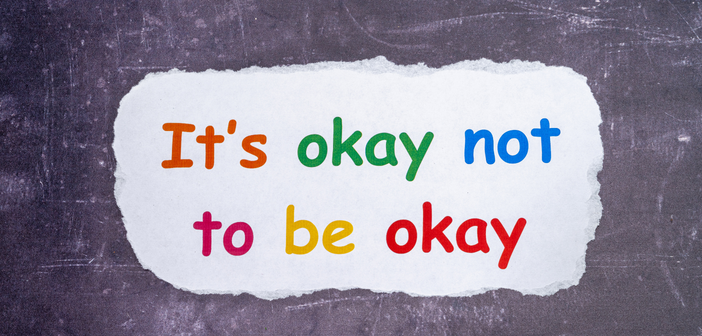Today’s article is a guest post from Dr. Cedric Williams, a Consulting Psychologist & CEO of Legacy Consulting & Research Group. His work and research interests are in the domains of Multicultural Competence, Resilience, Leadership, and Occupational Thriving. Dr. Williams provides coaching and consulting services for individuals, teams, and organizations.
Dear Pastor,
This week my conversations with church friends and colleagues have had a similar theme. That theme is this: What can I do? As a Christian, black male psychologist, father, husband, ordained minister, and military reserve officer, I believe it is important to show up in critical moments.
My hope for this brief blog will be to highlight some practical ways to lead your congregation in such a time as this. I fully understand that the cultural context for each of you is unique; however, the following thoughts are meant to be descriptive guidelines rather than prescriptive mandates.
Ultimately, I hope you take the time to listen. I hope you hear my desire for change. I hope you do not become overwhelmed by your feelings of inadequacy or guilt, but instead focus on the hope of Christ through the embodied practice of racial reconciliation in the Church. Your church.
1) Start with empathy.
As a psychologist, this is the first thing that we learn. We start any dialogue seeking to understand. Seeking to listen, not to solve. This may seem like a misnomer, but sometimes the best approach in any global, local, or individual conversation is to truly hear and understand what is happening. Where is the source of the pain? Where is the hurt? How can I prevent repeating the systemic pattern of dismissiveness to the pain in this moment? Start with empathy.
2) Remember that silence is loud.
The American church has a history of being complicity silent regarding racial injustice. Break the cycle. It may be a challenge. You may say something that’s regrettable along the way but saying something is important.
Read: The Color of Compromise: The Truth About the American Church’s Complicity in Racism by Jemar Tisby
3) Keep the main thing the main thing.
If you are starting your sermons talking about riots and looting… you are missing it. Every situation will have opportunists. People who will exploit the pain of others to hijack the conversation. Can I encourage you to not make this detestable action of looting the main thing. Because it is not. Black suffering, racism, inequality, and devaluing of black people in this society is the main thing in this moment. Lead with that. Preach to that. Sit with that in your private conversations and your public homily.
4) Dispel dichotomous labels.
Black Lives Matter does not equal anti-police. Blue Lives Matter does not equal anti-black. Stating Black Lives Matter does not dispel that All Lives Matter. Encourage your congregants to discard these false dichotomous traps.
5) Avoid giving simplistic and ambiguous answers to complex realities.
Phrases like “God would not give you more than you can handle,” “We only can pray,” and “All things happen for a reason” are unhelpful in these moments. They speak more to the speaker’s feelings of anxiety rather than the listener’s pain. There is a reason that Psalm 37 is a part of the canon of Scripture.
6) Do your own research.
Black friends and family members are not solely responsible for educating white people on issues of racism and injustice. Find ways to read and listen to podcasts regarding black scholarship on race, religion, history, and racism in the American church.
Read:
– The Cross and the Lynching Tree by James H. Cone
– “Hip Hop Hermeneutic” (Article)
7) Invite black leaders to speak with your congregation.
Representation matters. Research has continually demonstrated that collaboration and face-to-face exposure is one of the best ways to break down barriers of racial division. The primary interaction between black suffering and your congregations cannot be moderated through a television screen. Tackling the sin of racism is not a task that can be completed in racial isolation. Hearing the stories of black joy, black suffering, black thoughts, and black hopes is a vital component of reconciliation. If you have black leaders in your sphere that are willing to talk with your congregation, invite them. If you do not, seek out black leaders that will.
8) Develop multicultural competence and humility.
Take time to develop multicultural humility and competence. Take time to reflect on your own cultural development. Take time to reflect on your feelings about other cultures, and how that influences your day-to-day beliefs, thoughts, and behavior towards others. Explore this individually and within your Christian community.
Read:
– “What is Multicultural Competence?” (Article)
– “Bird Watching While Black: Authority, Influence, and Racism” (Article)
9) Rethink your community outreach.
If you find yourself having a discussion about how to reach out to the black community during this time, and the most prominent idea is to increase the benevolence fund, expand child care services, start a tutoring program, or some type of service where there is a power deferential, let me encourage you to pivot. All of those programs are great. However, engaging the black community without any hint of a power deferential is critical. Do not attempt to be the white savior. If you don’t know or understand the aforementioned term, perhaps read the literature to understand this important cultural concept. Perhaps spend your time alongside your black community in peaceful protest or demonstrations.
Read:
– “Working Together Toward Racial Reconciliation” (Article)
– “Forgiveness and Justice: Two Keys to Reconciliation” (Article)
10) Take risk and commit to exploring this reality.
As a disciple of Jesus, and as a leader in your congregation, you are not a bystander. You are fully a part of what is happening in our society. Your church has an opportunity to be a forerunner for justice and to model an incarnational response by embodying reconciliation and hope. Recognize that if you are curious about what to do, and feel activated, you are not alone. There are more than likely people in your church who feel the same way. They are waiting for their leaders to take decisive action by exploring and fumbling through intentional conversations, sermons, and Sunday school lessons on race, racism, and racial reconciliation.
Dear pastor, the time is now. Your God-given authority and influence in your community has the capability to co-create change. I hope you will reflect. I hope you will respond.
Now to him who by the power at work within us is able to accomplish abundantly far more than all we can ask or imagine, to him be glory in the church and in Christ Jesus to all generations, forever and ever. Amen.
 Dr. Cedric Williams is a Consulting Psychologist & CEO of Legacy Consulting & Research Group. His work and research interests are in the domains of Multicultural Competence, Resilience, Leadership, and Occupational Thriving. Dr. Williams provides coaching and consulting services for individuals, teams, and organizations. For more information visit www.legacycrg.com or contact him directly at info@legacycrg.com.
Dr. Cedric Williams is a Consulting Psychologist & CEO of Legacy Consulting & Research Group. His work and research interests are in the domains of Multicultural Competence, Resilience, Leadership, and Occupational Thriving. Dr. Williams provides coaching and consulting services for individuals, teams, and organizations. For more information visit www.legacycrg.com or contact him directly at info@legacycrg.com.







